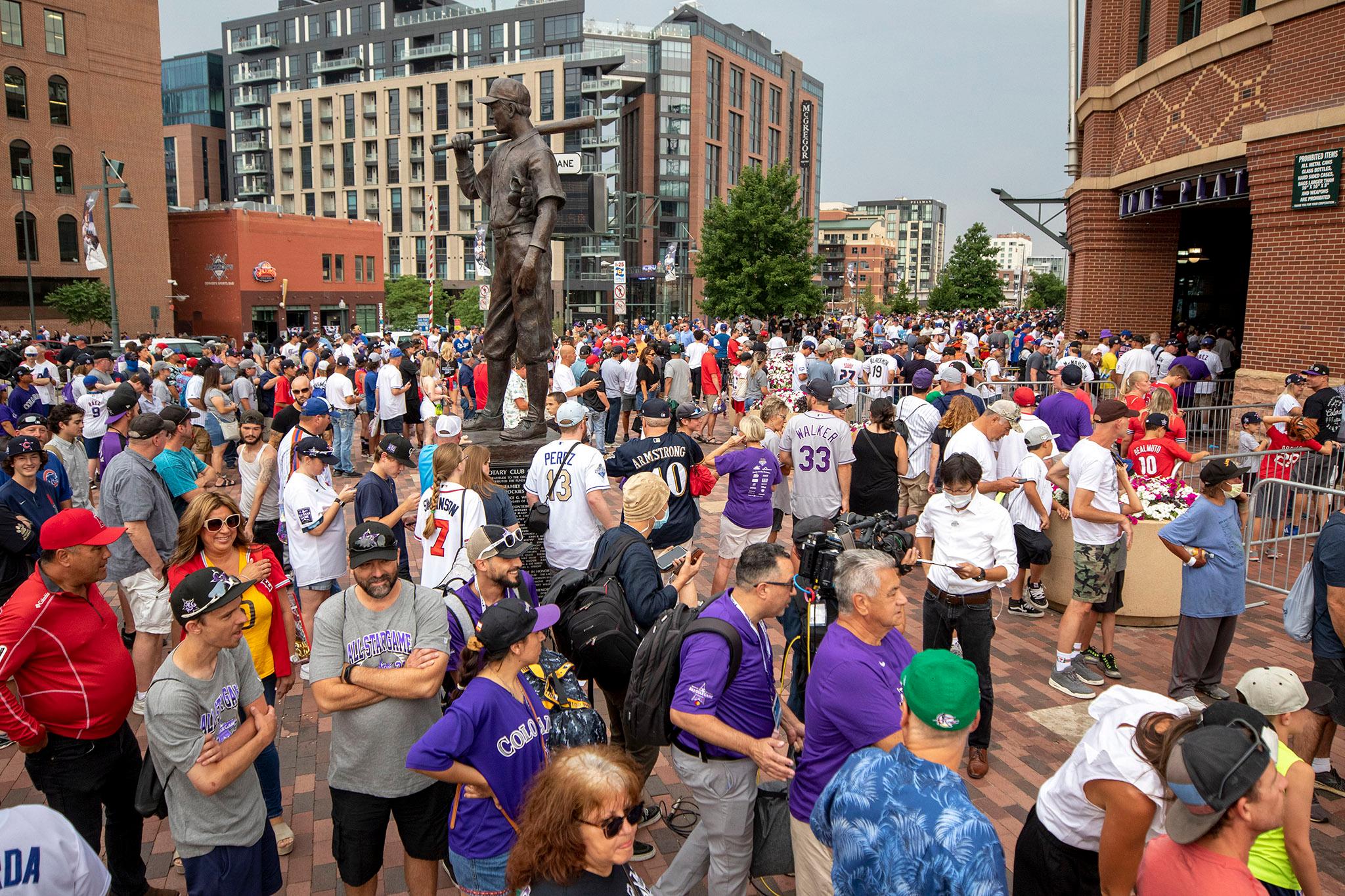Business owners in Denver are combing over their receipts now that Major League Baseball's All-Star Game has come and gone.
The early returns indicate that the event might have fallen short of expectations set by three months of hype.
"Overall, it was better than most weekends ... to the extent that everyone was hoping, it wasn't really there," said Erik Riggs, owner of Freshcraft, a casual restaurant specializing in craft beers about a 10-minute walk from Coors Field.
State and city officials said the economic impact could be between $100 million and $190 million when it was announced in April that Major League Baseball was moving the All-Star Game to Denver after an uproar over voting laws in Georgia. The game was billed as Denver's coming-out party after pandemic restrictions shut much of the city down for more than a year. Streets around Coors Field were closed to make way for partiers, and there were five days of activities throughout Denver to mark the occasion.
There is no doubt the game drew many thousands of people to the sidewalks of LoDo, and it will take some time to fully calculate the economic impact. But at least one data point suggests the crowds weren't as big as expected. A report from the Downtown Denver Partnership shows that the weekend preceding the Fourth of July drew more foot traffic to the area than the All-Star Game. More than 250,000 people were walking around each day during the holiday weekend, compared to 230,000 on July 13, the day of the All-Star game, the data show.
Downtown boosters say the numbers are encouraging.
"People are returning downtown, returning to their city, remembering what they love so much about what a city has to offer them... whether it's over Fourth of July weekend, during MLB All Star festivities or whether it's just a normal weekend downtown, " said Britt Diehl, a senior manager at the Downtown Denver Partnership.
A spokesperson for Denver's department of Economic Development & Opportunity said insight on the direct impact of the All-Star Game will be available in August or September through sales tax collections, adding that the city doesn't plan to conduct a formal economic impact study.
Businesses saw different traffic patterns depending on their proximity to Coors Field. Riggs of Freshcraft saw the biggest crowds during the weekend leading up to the game, including a group of several dozen that worked for Major League Baseball. But business largely dried up on Monday once the Home Run Derby got underway, he said.
At Jackson's LoDo, a pre-game drinking spot directly across from Coors Field, the crowds were bigger on Monday and Tuesday, according to Andrew Herber, the bar's service manager. But even in such a prime location, it wasn't as busy as Herber had expected.
"I thought it was going to be a little bit more like Opening Day, which wasn't the case. But it was still a really good turnout," he said.
Meghan Steele, a bartender at the nearby Giggling Grizzly, was also hoping for a multi-day celebration akin to a Rockies home-opener.
"We thought it would be packed from 11 a.m. on, and it's been like a slow burn," Steele said the day of the All-Star game.
Steele lamented that All-Star fans must be more interested in watching the game.
"What we realized is that the people going to the All-Star game are really dedicated baseball fans that wanted to be here to see the players, to be part of that ... more so than the drinking before or after," she said.
Riggs of Freshcraft agrees.
"If you spend 500 dollars to go to the Home Run Derby, you're not going to show up halfway through," he said.
In fact, Riggs said, there seemed to be more people downtown to see the Los Angeles Dodgers play the Rockies the weekend after the All-Star Game. His bar was full at 3 p.m., he said.
Maybe it's simply the makeup of the hometown fans.
"The Rockies are the Rockies - they're not good," Riggs said. "Most people going to Rockies games don't care if they get there in the third inning."














